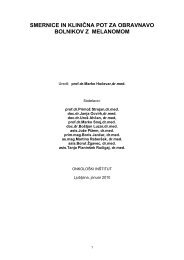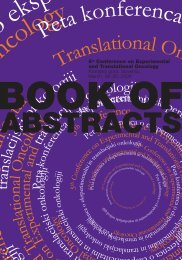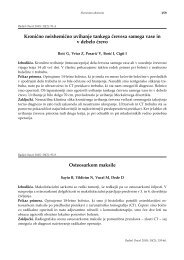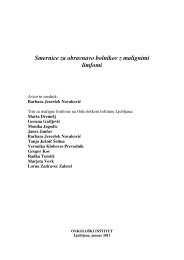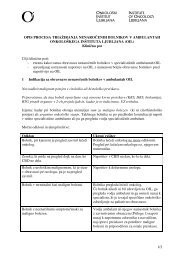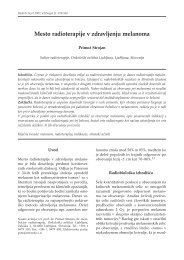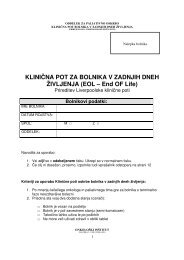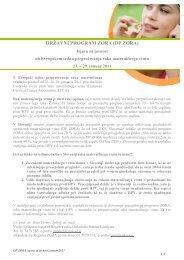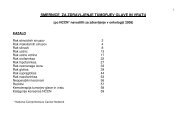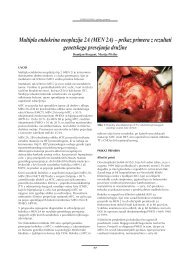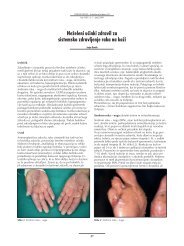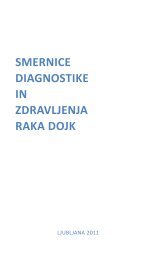Create successful ePaper yourself
Turn your PDF publications into a flip-book with our unique Google optimized e-Paper software.
Differential effects of Cathepsin L deficiency on multistage<br />
tumorigenesis of epidermal carcinomas in K14-HPV16<br />
mice as compared to islet cell tumors in the RIP1-Tag2<br />
mouse tumor model<br />
Thomas Reinheckel 1 , Tobias Lohmüller 1 , Vasilena Gocheva 2 ,<br />
Julia Dennemärker 1 , Christoph Peters 1 , and Johanna A. Joyce 2<br />
1<br />
Department of Molecular Medicine and Cell Research, Albert-Ludwigs-University Freiburg,<br />
Germany; 2 Cancer Biology and Genetics Program, Memorial Sloan Kettering Cancer Center,<br />
New York, NY 10<strong>02</strong>1, USA.<br />
To assess the functional significance of cathepsin L (CTSL) in epidermal carcinogenesis,<br />
we adopted a genetic approach utilizing ctsl -/- mice bred with transgenic<br />
Tg(K14-HPV16) mice, which express the human papillomavirus type 16 oncogenes under<br />
the control of the keratin 14 promoter and reproducibly show multistage development<br />
of invasive squamous cell carcinomas of the epidermis. During the observation<br />
period of 52 weeks the overall survival of Tg(K14-HPV16);ctsl -/- mice is significantly<br />
shorter than the survival of Tg(K14-HPV16);ctsl +/+ ,and Tg(K14-HPV16);ctsl +/- mice.<br />
Development of dysplastic lesions and average tumor onset of Tg(K14-HPV16);ctsl -<br />
/-<br />
mice occurs 2 months earlier than in Tg(K14-HPV16);ctsl +/+ or Tg(K14-HPV16);ctsl +/-<br />
mice (p



